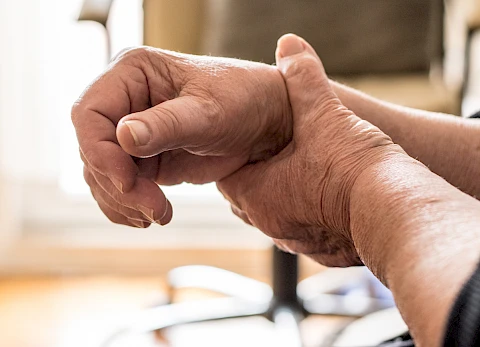
April is Parkinson's Disease Awareness Month, a great time to learn more about this common neurological condition. Parkinson’s is a condition that often affects older adults. Parkinson's disease is quite common among seniors. Understanding the basics of Parkinson’s can help you recognize symptoms, explore treatment options, and stay proactive in managing your health.
Parkinson's Disease Explained
Parkinson's disease is a neurological disorder that affects movement. It happens when the brain's dopamine-producing cells start to die. Dopamine is a chemical responsible for sending messages to the part of the brain that controls movement and coordination.
Without enough dopamine, people with Parkinson's disease may find it harder to control their movements. This progressive disorder can also affect other parts of the body, leading to a wide range of symptoms beyond movement challenges.
Recognizing Common Symptoms
The signs of Parkinson's can start subtle, but early recognition can make a big difference in managing the condition. Some early symptoms include:
- Tremors: Slight shaking usually begins in the hands or fingers and may be noticeable even when at rest.
- Stiffness: Rigid muscles can occur in any part of the body, leading to reduced flexibility and pain.
- Balance issues: A shuffling walk or trouble maintaining balance can be early indicators.
Parkinson's can also bring non-motor symptoms, which might include sleep disturbances and mood changes. Trouble sleeping or acting out dreams is common. Depression, anxiety, and other mood alterations might also occur as part of the disease.
The Progression of Parkinson's
Parkinson's disease progresses in stages, typically starting with mild symptoms that gradually worsen. In the initial stages, symptoms are usually mild and might not interfere much with daily activities. Over time, activities like dressing, writing, and walking can become more difficult as movement slows and muscle stiffness increases. Eventually, without appropriate management, symptoms may become more challenging and require comprehensive care and support.
The Importance of Early Diagnosis
Detecting Parkinson's disease early on can significantly improve the ability to manage its symptoms. This can lead to a better quality of life and slow the progression of some symptoms. Regular health check-ups are equally crucial. If you notice any changes in movement or mood that could suggest Parkinson's, consult a healthcare professional immediately.
Treatment Options
While there is no cure for Parkinson's, medications can help control symptoms by increasing or substituting dopamine. Physical and occupational therapies are also great ways to improve mobility, flexibility, and balance. Personalized care plans tailored to individual needs can be the most effective way to manage the symptoms associated with the condition.
Senior Helpers' Offers Compassionate Parkinson's Care Services
Understanding Parkinson's and taking proactive steps can make a significant difference in managing the disease. If you’re diagnosed with the condition and could use more support at home, we can help. Serving Tulsa, McAlester, Broken Arrow, and Sand Springs, Senior Helpers Tulsa offers personalized senior home care services, including specialized Parkinson’s care. Our trained caregivers provide support with daily personal and household tasks and offer compassionate, engaging companionship. Contact us today for more information!